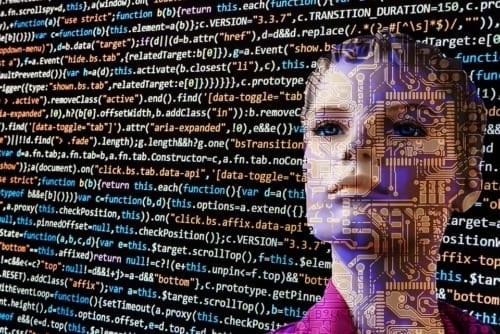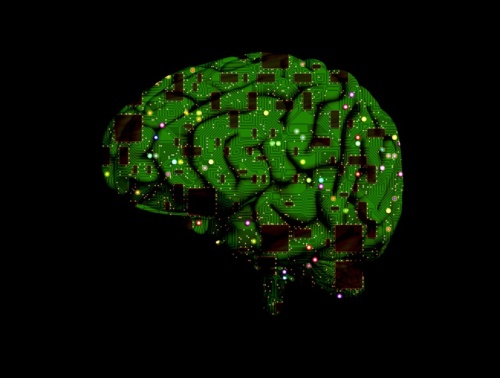AI and the case to begin with standardized test preparation
by Edan Shahar
Editor’s Note: This is Part Two in a Three Part Series. Part 1
 Education technology is a rapidly growing field, fed in large part by the development of machine learning and artificial intelligence software designed to personalize learning.
Education technology is a rapidly growing field, fed in large part by the development of machine learning and artificial intelligence software designed to personalize learning.
At the heart of artificial intelligence (AI) is data. The best, most effective AI software is built on a wealth of data, and continually improves by learning from ongoing data collection.
The perfect example of this is self-driving cars. Fully autonomous cars are yet to reach consumers, as the cars have to first go through millions of hours of simulated driving, and then millions of hours of real test drives, simply to have enough data for the cars to learn and then demonstrate that they can safely and reliably handle any situation on the road.
As with driving, when it comes to education and learning, the data can be messy and overwhelming. Thus, we need a starting point that simplifies the task: standardized test preparation.
Data is a hard thing to be certain of in dynamic settings like classrooms and across the varying attention spans and study habits of students. Moreover, quantifying success or competency on many classroom tasks is difficult. For instance, measuring a student’s ability in literary analysis is much more complicated than determining whether that student answered a math question correctly.
Compared to these potentially nebulous classroom assignments, standardized tests offer concrete data points, the ideal entries for AI. Rather than testing literary analysis generally, standardized tests ask multiple-choice reading comprehension questions. Each question on a standardized test is in the same format, each is designed to test students’ ability with specific subject matter, and there is always a correct answer.
 Usually, though, a standardized test yields a score based on just one point in time. For AI to be an effective tool in improving educational outcomes, it has to have data about student learning. Thus, standardized test preparation is truly the ideal starting point for AI in education. As students prepare, they answer each type of test question repeatedly over time, giving AI ample data to evaluate their current understanding, their strengths and weaknesses, and their learning process.
Usually, though, a standardized test yields a score based on just one point in time. For AI to be an effective tool in improving educational outcomes, it has to have data about student learning. Thus, standardized test preparation is truly the ideal starting point for AI in education. As students prepare, they answer each type of test question repeatedly over time, giving AI ample data to evaluate their current understanding, their strengths and weaknesses, and their learning process.
There are a few important benefits to using AI in this space. One is the analysis that AI can offer on even single test completion results. AI is able to see patterns that a human cannot. Whether noticing a trend between missed algebraic word problems and difficulty with reading comprehension, or recognizing how the length of time spent on geometry questions reflects a weakness with spatial reasoning, AI can immediately create a deep and nuanced student profile.
As students prepare, they follow different pathways to improve. Some might complete practice problems in a specific subject, while others might review a video lesson in something else. AI uses every student’s data to determine the best path for each student profile and then recommends that pathway to subsequent students.
Not only can AI help students learn, standardized test assessment itself can be improved through the use of AI. Using the preparation process as part of the assessment creates a completely new and better way to measure student ability and potential.
When AI analyzes student performance in their test preparation, it can track not only which questions a student answered correctly, but also what the student did for the questions they missed. Did the student watch videos, do specific practice, review, and improve? Even if the student’s initial score may have been low, the data also shows that the student has grit, which we know is a leading indicator of future academic and personal success.
 Put another way, what if the score generated by standardized tests is incomplete and in fact suppresses some of the most important qualities a student can possess? AI may not be ready to disrupt the classroom, but its initial forays into education are changing the way we think about student assessments.
Put another way, what if the score generated by standardized tests is incomplete and in fact suppresses some of the most important qualities a student can possess? AI may not be ready to disrupt the classroom, but its initial forays into education are changing the way we think about student assessments.
We will talk more in the next installment in this series on AI in education about the future impact the technology can have in other areas, but what we know for certain is grit scores are just the beginning.
Author
 Edan Shahar is the founder and CEO of Test Innovators the leading ISEE and SSAT test prep company. He has extensive experience in technology companies and teaching. He has founded several technology companies, including Utrip, Inc., which turn data into actionable-insights.
Edan Shahar is the founder and CEO of Test Innovators the leading ISEE and SSAT test prep company. He has extensive experience in technology companies and teaching. He has founded several technology companies, including Utrip, Inc., which turn data into actionable-insights.In founding Test Innovators, Edan combines his love of education with a passion for using technology to create superior methods to improve student performance.
Further Reading
- TeachThought – 10 Roles For Artificial Intelligence In Education
- TechEmergence – Examples of Artificial Intelligence in Education
- Forbes – Artificial Intelligence In Schools Is Closer Than You Think
